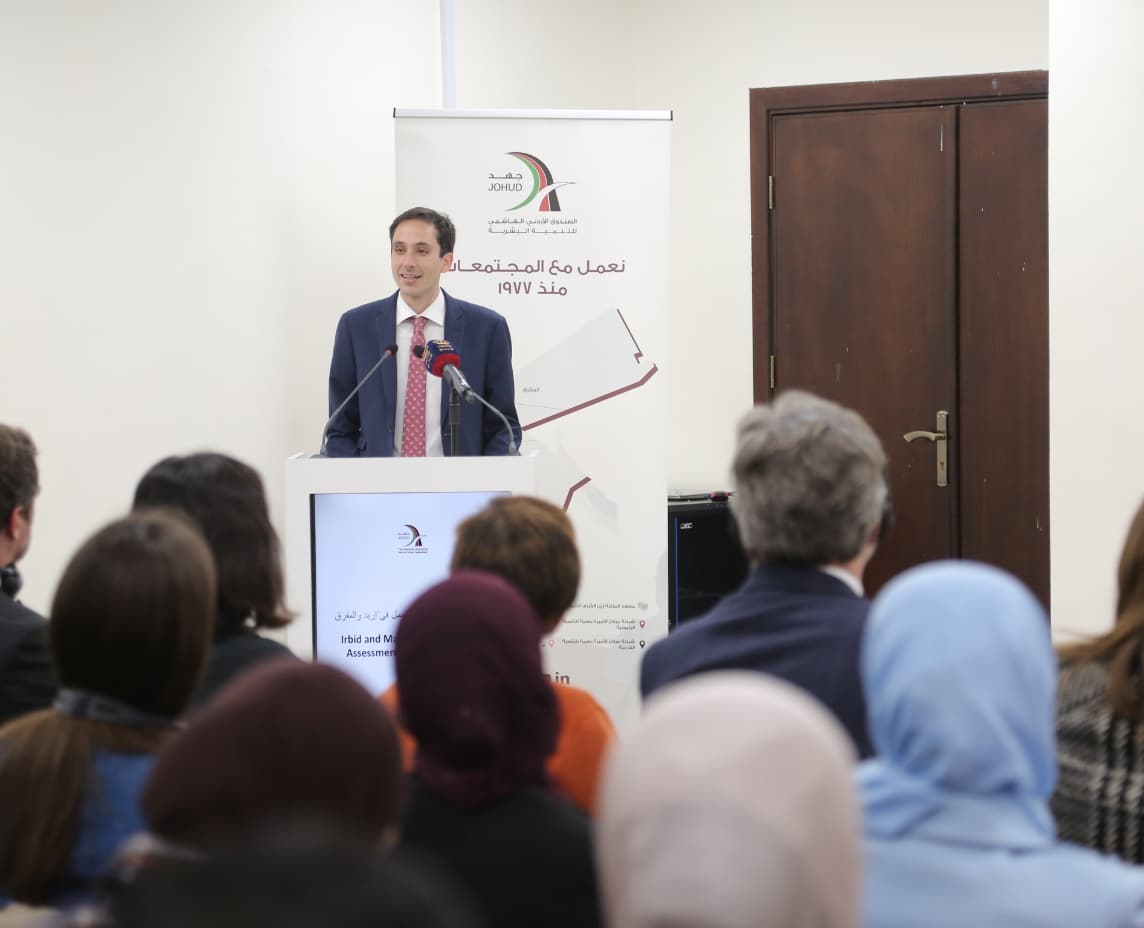On March 21, two labor market evaluation reports, in Irbid and Mafraq, were presented in Jordan, carried out within the framework of our Project currently underway that seeks to empower Jordanian women by providing them with tools to get out of the situation of vulnerability and poverty. This project is carried out together with the local partner Jordan Hashemite Fund for Human Development (JOHUD) and with the financing of the Spanish Agency for International Development Cooperation (AECID).
The event, held at the Queen Zein Al Sharaf Institute for Development (ZENID), was chaired by Princess Basma Bint Talal; Miguel de Lucas González, Ambassador of Spain in Jordan; María Isabel González González, Project Officer of the Spanish Agency for International Development Cooperation in Jordan (AECID); and Jorge Jiménez Cañas, our Head of Mission in Jordan and Lebanon, who addressed a few words of welcome to the audience.
On behalf of JOHUD, within the Natural Resources Management Program (NRMP), Saja Atiyat, administrative assistant, served as master of ceremonies; Aseel Mkheimer, coordinator, opened the event, framing the meaning of this study within the activities of the project; and finally, Duaa Al Mufleh moderated a meeting with three women from Irbid and Mafraq, two Jordanians and one Syrian, in which they presented their success stories, reflecting on their experiences, the added value that their participation in the project is bringing and the next steps to follow.
Likewise, Tariq Shatnawi, Director of the JOHUD Community Development Centers (CDC), made a presentation of the market evaluation, highlighting its objectives, the methodology used to carry it out, the challenges and aspects to be mitigated detected, the recommendations and the relationship between the results of the evaluation and the design of the next interventions of the project. He also spoke about formal employability, the creation and/or expansion of micro-enterprises, and entrepreneurship in the green economy.
The event was also attended by representatives of ministries, national and international NGOs, UN organizations, JOHUD community development centers, youth and women’s committees, and volunteers.
Prior to this presentation, a workshop was held on March 20 to develop a guideline for the private sector, which helps improve the working environment, making it conducive and free of violence, for Jordanian women.





